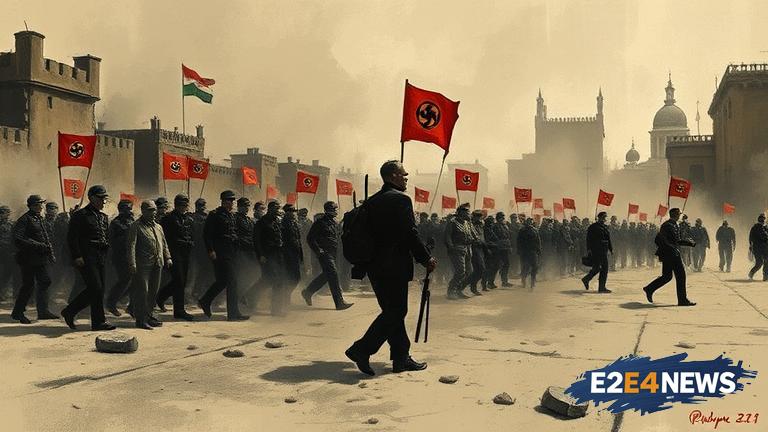The recent surge in violence and human rights abuses in the Middle East has drawn unsettling parallels with the atrocities committed during the Nazi regime. Zionism, a political ideology that emerged in the late 19th century, has been at the forefront of the Israeli-Palestinian conflict, with its modern manifestations raising concerns about the erosion of human rights and the rule of law. The forced displacement of Palestinians, the construction of separation walls, and the imposition of restrictive measures on movement and access to basic necessities have been likened to the Nazi regime’s policies of segregation and persecution. The international community has been criticized for its inadequate response to these abuses, with some arguing that the lack of accountability has emboldened perpetrators and perpetuated a culture of impunity. The situation on the ground is dire, with Palestinians facing daily struggles to access basic necessities like food, water, and healthcare. The psychological toll of living under occupation is also significant, with many Palestinians experiencing trauma, anxiety, and depression. The Israeli government’s actions have been condemned by human rights organizations and international bodies, with many calling for an end to the occupation and the establishment of a sovereign Palestinian state. However, the Israeli government has refused to budge, citing security concerns and the need to protect its citizens. The conflict has also had a profound impact on the regional dynamics, with neighboring countries feeling the ripple effects of the violence and instability. The role of the international community in resolving the conflict is crucial, with many arguing that a two-state solution is the only viable option for achieving lasting peace. However, the current situation on the ground makes it increasingly difficult to envision a peaceful resolution, with many Palestinians and Israelis feeling disillusioned and disenfranchised. The rise of extremist groups on both sides has also added to the complexity of the conflict, with many advocating for a more nuanced and multifaceted approach to resolving the crisis. Despite the challenges, there are still many who believe that a peaceful resolution is possible, with some advocating for a return to the negotiating table and others pushing for a more grassroots approach to building bridges between communities. The situation is complex and multifaceted, with no easy solutions in sight. However, one thing is clear: the international community must take a stronger stance against human rights abuses and work towards a more just and equitable solution for all parties involved. The parallels between Zionism’s modern atrocities and the Nazi regime are unsettling, and it is imperative that we learn from history to avoid repeating the same mistakes. The world must come together to condemn these abuses and work towards a more peaceful and just future for all. The time for action is now, and the international community must take a stand against injustice and oppression. The fate of the Palestinian people and the future of the region hang in the balance, and it is our collective responsibility to ensure that human rights are protected and respected. The situation is dire, but it is not too late to make a difference. We must act now to prevent further suffering and work towards a more just and peaceful future for all. The consequences of inaction will be catastrophic, and it is our moral obligation to take a stand against injustice and oppression. The world is watching, and it is time for us to take action. The future of the region and the lives of countless individuals depend on it. The clock is ticking, and the time for action is now.
